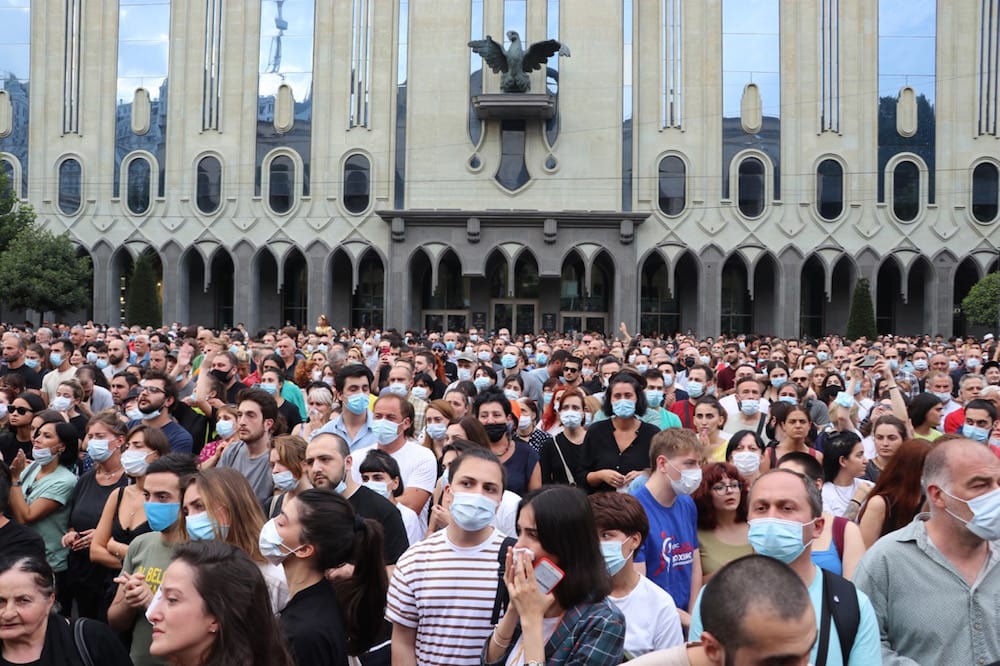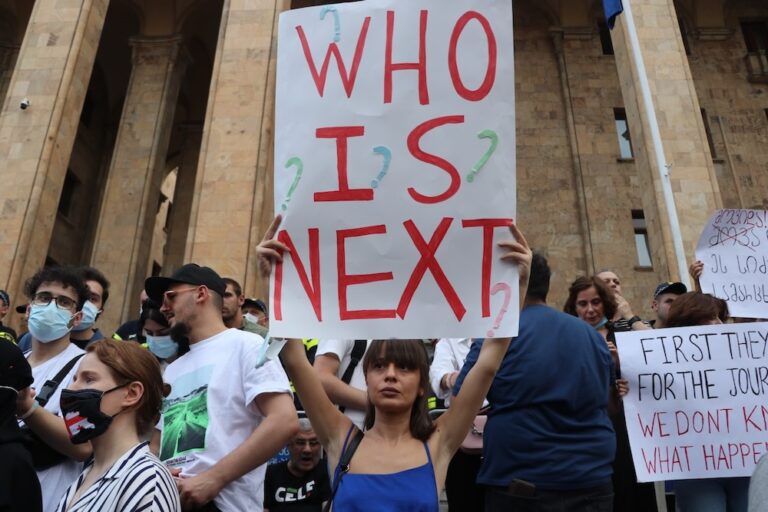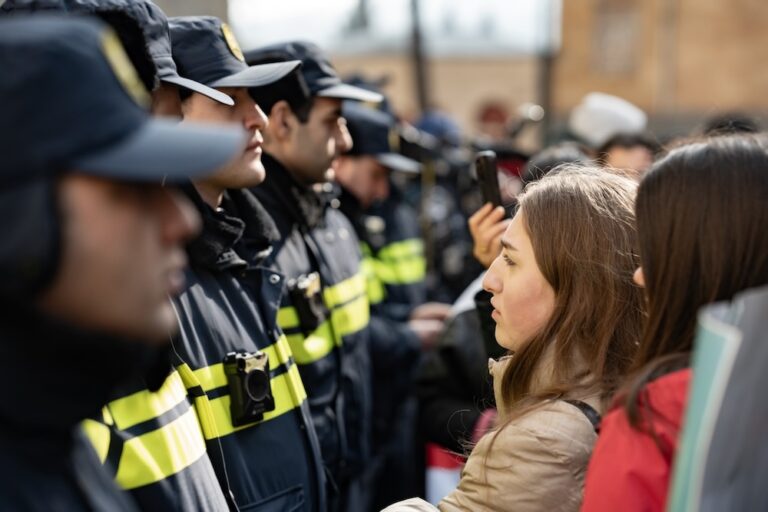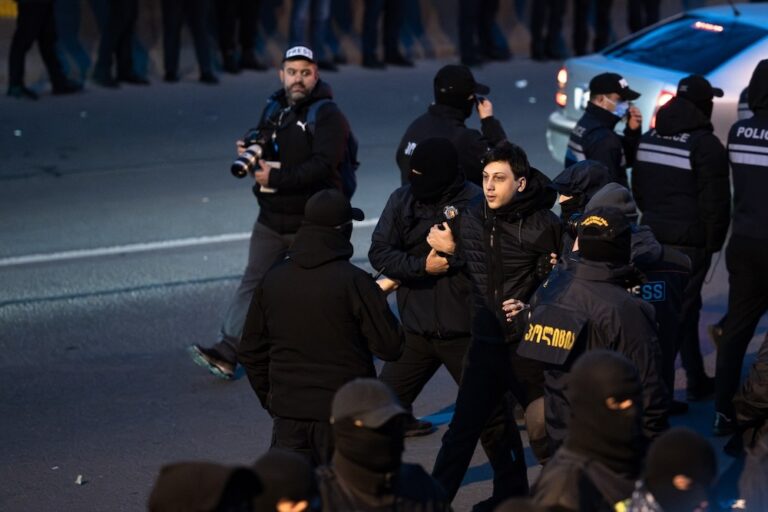“Instead of trying to discredit the late cameraman, we demand that the Interior Ministry launch an in-depth, impartial and transparent investigation of the circumstances of his death and of the attacks suffered by journalists whom the police failed to protect."
This statement was originally published on rsf.org on 12 July 2021.
Cameraman Aleksandr “Lekso” Lashkarava died after being seriously injured while covering a counter-demonstration by homophobic far-rightists. Reporters Without Borders demands an in-depth, impartial and transparent official investigation of the circumstances of Lashkarava’s death.
Aleksandr Lashkarava’s mother found him dead in his bed on Sunday morning. A cameraman for Georgian opposition station Pirveli TV, he had undergone emergency surgery on 5 July for facial fractures and a concussion. He and 52 other journalists had been attacked while covering the counter-demonstration against a Pride march in Tbilisi, the Georgian capital.
Lashkarava and Miranda Bagaturia were setting up to film in an NGO office when the mob burst in. “What are you doing, we are journalists!,” the cameraman yelled when an Orthodox priest began to grab his colleague by the hair. Assaulted by about 20 homophobic extremists, Lashkarava was covered in blood. “We were completely defenseless, there was only one police officer, and he couldn’t help us,” Bagaturia told the local press. Only five of the assailants have been arrested so far.
The Interior Ministry has opened an investigation for “incitement to suicide” to determine the exact cause of the journalist’s death. During a press conference Sunday afternoon, a ministry spokesman suggested that the death might have been caused by a drug overdose. The Health Ministry, for its part, has launched an investigation of the adequacy of medical services at the clinic where he was treated. Lashkarava was discharged on 8 July.
Lashkarava’s family, which does not trust the government, unsuccessfully opposed the taking of his body for a forensic examination. Some relatives said that he had had a nose bleed, and suspect a thromboembolism resulting from his injuries.
“After the coordinated attack on more than 50 journalists, the suspicious death of Aleksandr Lashkarava marks a disastrous turning point for the freedom to inform in Georgia,” said Jeanne Cavalier, head of RSF’s Eastern Europe and Central Asia desk. “Instead of trying to discredit the late cameraman, we demand that the Interior Ministry launch an in-depth, impartial and transparent investigation of the circumstances of his death and of the attacks suffered by journalists whom the police failed to protect. Officials’ passivity in the face of this extreme attempt at intimidation of journalists by homophobic movements erodes the credibility of the government, which should not tolerate impunity, and which must accept its share of responsibility in the matter.”
Journalists reported the blatant lack of security forces and condemned their passivity during the counter-demonstrations against the LGBT+ march. It had been scheduled for 5 July but was cancelled because of risk to demonstrators. On the afternoon of 11 July, thousands of demonstrators gathered in front of the parliament building in Tbilisi, demanding the resignation of Prime Minister Irakli Garibashvili. Many journalists, including colleagues of Lashkarava, addressed the crowd, demanding that the government face its responsibility for his death. “Journalists have always come to this square to speak about the rallies. But the government of Georgia, step by step, brought us to the point that today we are holding a protest action here,” said Pirveli TV presenter Diana Trapaidze.
Though the prime minister deplored, in a Facebook post, the “unbelievable tragedy,” only President Salome Zourabichvili, who visited Lashkarava’s family to express her condolences, clearly condemned the violence and publicly defended the right to freedom of expression, which is guaranteed by the Georgian constitution.
Heading the Eastern Europe and Central Asian region, Georgia ranks 60th out of 180 countries in RSF’s 2021 World Press Freedom Index.



